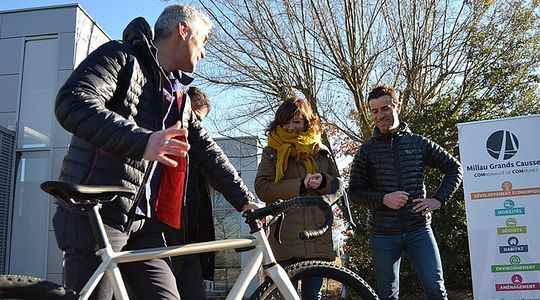And if it was possible ? And if, even in the countryside, we could move around other than by private car? Many doubt it. And yet, a small rural area has been carrying out an innovative policy for several years that forces us to seriously ask ourselves the question.
“It is possible not to always use the individual car”
This atypical region is the Grands Causses regional natural park, in the south of Aveyron. On the rural side, we are not doing much better. With Millau, 22,000 inhabitants, as the only “big city”, any metro or tramway project is obviously unthinkable there. However, “we believe that it is possible not to always use the individual car for travel, underlines Florent Tarrisse, general manager of community services. But for that, it is necessary to offer the inhabitants a bouquet of solutions, so that they find one adapted to their situation. And this is not utopian: 50% of the inhabitants live in the municipality where they work.” Let’s take a few examples.
For several years, the park has offered to borrow an electric bike free of charge for a week. The time to test it in its daily life and, possibly, to adopt it. With, icing on the cake, a reduction if you buy it from a local seller, and an almost zero-rate loan guaranteed by the park. And it works ! 30% of users acquire a two-wheeler immediately. Better: to encourage practice, a network of 150 kilometers of cycle paths will soon link the main employment areas and the most attractive tourist sites.
Carpooling, carsharing, eco-driving…
Isn’t the electric bike the magic solution for getting around the countryside? That’s good: it’s not the only option offered by the park either, which multiplies the proposals. Hitchhiking, for example, with an agreement with the company Rezo Pouce, which has set up a free and secure system. Discussions are also underway with companies to encourage them to harmonize their working hours in order to facilitate carpooling for their employees.
We should also mention the encouragement of car sharing; the possibility for anyone to get on a school bus; training in “eco-driving”. Although this list is not exhaustive, the philosophy is easy to understand: offer the maximum number of alternative devices to the individual car so that everyone can continue to move, but pollute less. And this without moralizing speeches, without anti-car diatribes, without the slightest desire to concentrate the populations in the cities at the risk of seeing the villages die. Innovative ideas that soaring fuel prices are making more and more relevant.
An article from the special issue of L’Express “Find the city that suits you”
